|
During the summer of 2023, the Rowan Writing Arts social media tried something new. They launched their Non-conventional Genre Check posts. These posts are a nod to the preexisting series, Genre Checks. The Genre Check posts would explain a literary genre, like fantasy or horror.
To create something a little different, the Writing Arts department created the Non-conventional Genre Check series. These functioned under the same principles as the genre checks. However, they showcased genres that aren't confined to pen and paper. Some examples of genres covered this summer include, music, flags, scrapbooks, and more. The purpose of these posts were to highlight the subtler stories that surround us.
Captions and Designs Created by Cecilia Combs
The series will end on Monday, August 21st. The last four posts in the Non-conventional Genre Check series were unique. They explored the communities behind certain nontraditional storytelling techniques. The Writing Arts department partnered with the Ad Club, Avant literary magazine, Cinema Workshop, and Writing Arts Club. Each of these is an undergraduate organization centered in the communications college. The Writing Arts social media featured a specialized genre check exploring the type of story each of these clubs create. The Ad Club focuses on direct, and personal stories that appeal directly to the audience. Avant Literary Magazine curates flexible, long lasting stories with increased relatability. Cinema Workshop creates stories with deep thematic resonance with their audiences. Lastly, the Writing Arts Club develops an environment which is centered around allowing these stories to be told. All of these clubs create stories, and as such all deserve notice from the Writing Arts Department.
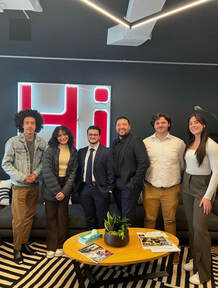 Image courtesy of Rowan Advertising Club. Image courtesy of Rowan Advertising Club.
This article will be elaborating on the storytelling techniques mentioned in the posts. To begin with, this article will discuss Rowan University's Ad Club. Benjamin Kahn, current president of Rowan University's Advertising Club states, "Advertising is all about telling the right stories. We collect data and weave that data into a narrative to give people more information about a product or service. Advertising tells us our options, why they matter, and why you should care. Consumers are always at the heart of advertising, so we work to find the story that speaks to our target audience."
Advertising employs some of the same techniques as in prose or rhetoric- using pathos, logos, ethos, or a type of story structure. However, its goal makes it unique. The advertiser's goal is to not only create an emotional reaction- but to use that response to create an observable response. In this way advertising has a direct connection to its audience. They are building a bridge between their product and the audience- and it's a straight walk from point A to point B.
This mirrors the intense intimacy created by poetry and the readers' emotions. Advertising focuses more on gaining observable outcomes from the emotive responses, instead of existing to explore emotions like poetry. Kahn summarized this point when he says, "In advertising, effective storytelling turns data and research into a narrative to create an emotional connection with consumers."
Advertising club is not alone in their focus on intense relationships between the audience and the author. Another club with an emphasis on this is Cinema Workshop.
Parker Bennink, vice-president of Cinema Workshop, comments on the club and on its approach to storytelling. He says, "Film tells stories by placing the viewer into the shoes of a character (sometimes multiple) as that character is challenged by an unfamiliar circumstance and/or forced to make a change within themselves."
The introspection is especially impactful in film, says Bennink. "Cinema tells stories by connecting to its audience on an emotional level...t's much more than just entertainment, it's an oddly introspective and personal experience. In my opinion, the best characters and the best movies are the ones that make me take a look at myself, and I think that achieving that type of connection is the ultimate measure of success for a film." This may be due in fact to the visceral nature of films. You are not only reading about what a character is experiencing- you are experiencing it with them. You are seeing what they would be seeing, hearing what they are hearing, and you can relate more closely with the feelings they are feeling. Every form of storytelling involves empathy, but in film you can watch every emotion at play in the narrative.
If you want to learn more about the emotional components of film, consider joining Cinema Workshop. They Meet on Thursdays at 9:30 pm in Bozorth Hall. To find out more information visit their social media page @rowancinemaworkshop or their website.
The strong reactions audience members have to film is a strength shared by advertising stories and stories found in film. In advertising the strong reactions can lead to quantifiable outcomes- more purchases, donations, or visitors to an event. In film this reaction can lead to a change of outlook caused by the themes of the movie. It can also just result in a new favorite movie! The fact that audience members are able to see and hear the story can help make it more relatable. This increased relatability can be found in another club on campus.
Avant, a form of group storytelling, can be very relatable to specifically Rowan students. It archives this reliability from having a wide range of contributions- all of whom are a part of the Rowan community. An example of group storytelling, is found in Avant Literary Magazine, the literary magazine on Rowan University's campus.
The president of the Club, Kelsey Pedersen, comments on the nature of the club. "t's not just the Editor in Chief making the decision... Every member of Avant has equal opportunity to give praise and critique." She describes the process of creating an Avant literary magazine. The Avant magazines are created by students at Rowan University. Any undergraduate student sends in pieces - poetry, prose, photography, art, and then the Avant club edits and selects which pieces go in the magazine. The club meets for two hours a week, where all the members discuss, critique, and vote on the pieces. Once the pieces are chosen, the club copy edits them as a group as well. Each piece "gets looked over by at least three sets of eyes..." as Pedersen states.
The multiple authors, editors, and club members strengthen the magazine by ensuring it is a flexible, and multi-faceted publication. The themes and focuses of each issue is sure to be unique and more reflective of Rowan's community thought process, than any one individual.
If you have an interest in submitting to Avant's literary magazine, or attending the club meetings, it's easy to do! Just follow them on Instagram, @Rowanavant, or look at their website. Meeting times and locations for their next few meetings are also available on Proflink.
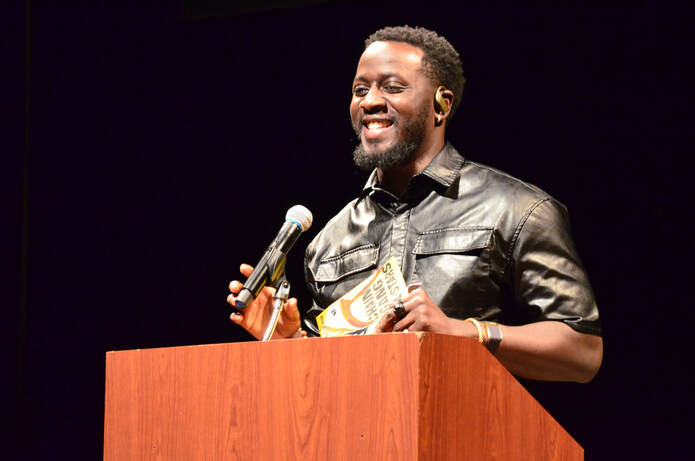 Photo Credit: Cecilia Combs Photo Credit: Cecilia Combs
However there is one form of storytelling that exists in all of these clubs. This form of storytelling also exists in every other community, class, or social situation. The storytelling that is always present with us is verbal storytelling. Though verbal storytelling is in every community, there is one club on campus where it is a priority.
Rowan Writing Arts Club is a club where people (with an interest in writing) meet. They all write poetry or prose responding to a set of prompts. The participants of the club learn traditional writing techniques. However, they also learn and practice another set of storytelling techniques- the technique of looking at another person and telling them a story. Sometimes these stories might turn into written work later, and sometimes they exist on their own. 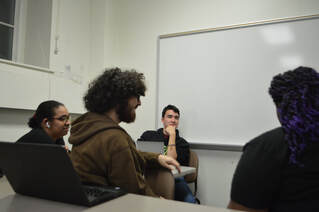 Photo Credit: Cecilia Combs Photo Credit: Cecilia Combs
Former president of Writing Arts Club, Diana DeSimione states, "Hearing people share their stories at WAC not only made me feel like I got to know them better, it also inspired me to be in a creative environment...My connections to people in WAC inspired me to look for creativity in everyone I meet. Past the veneer of small talk, majors, and day jobs, I want to learn about the passions that keep people going."
Verbal storytelling not only practices crucial storytelling skills- like pacing, deciding what works for your audience, word choice, and more, it also works to build communities and bring people closer together. If you're interested in Writing Arts Club, check out their Instagram @rowanwritingartsclub and their website which can be found here.
The storytelling techniques cultivated by these campus clubs strengthen multiple avenues of communication. These techniques facilitate the sharing of ideas in different fields. They also help to connect communities to each other and to the wider campus.
There are many options for communication based clubs available to undergraduates. From Hitchcock to Hemmingway, Rowan University houses students researching all types of storytelling. This article doesn't even scratch the service of all the ways to share ideas on campus!
During the upcoming semester consider attending one of these club's meetings. Learn about a storytelling style you are unfamiliar with. Keep an eye out for stories and writing lessons. You can find narratives everywhere around you - even in places you'd never expect. There are stories hiding in album covers, in tree trunks, on posters-almost anywhere you can think of. It's our job as writers to coax out all stories we can, not just the traditional.
You can find stories in everything if you know how to look.
Cecilia Combs
0 Comments
Leave a Reply. |
Archives
May 2024
Categories |
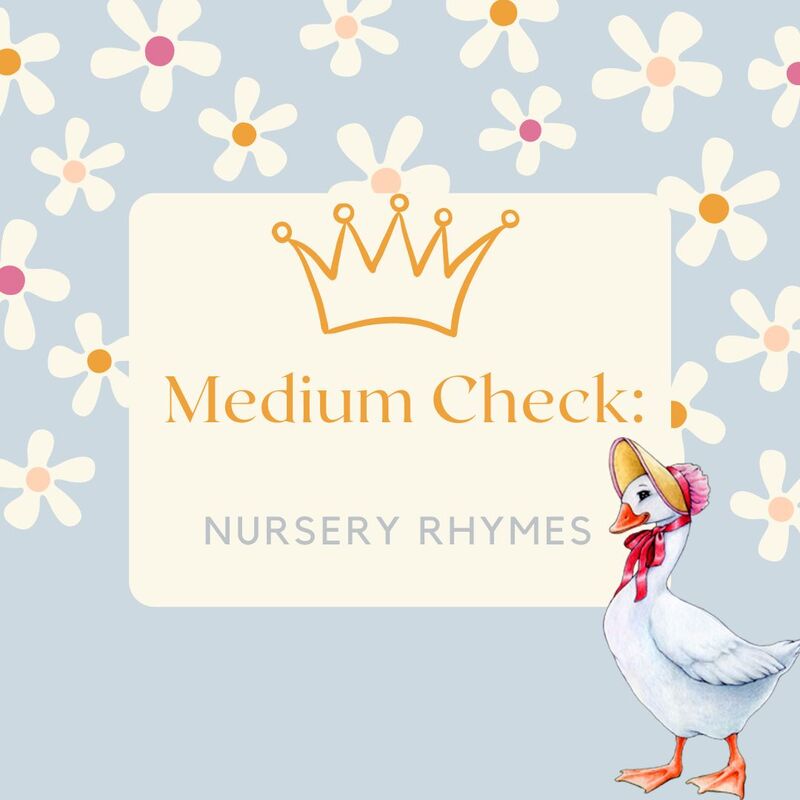
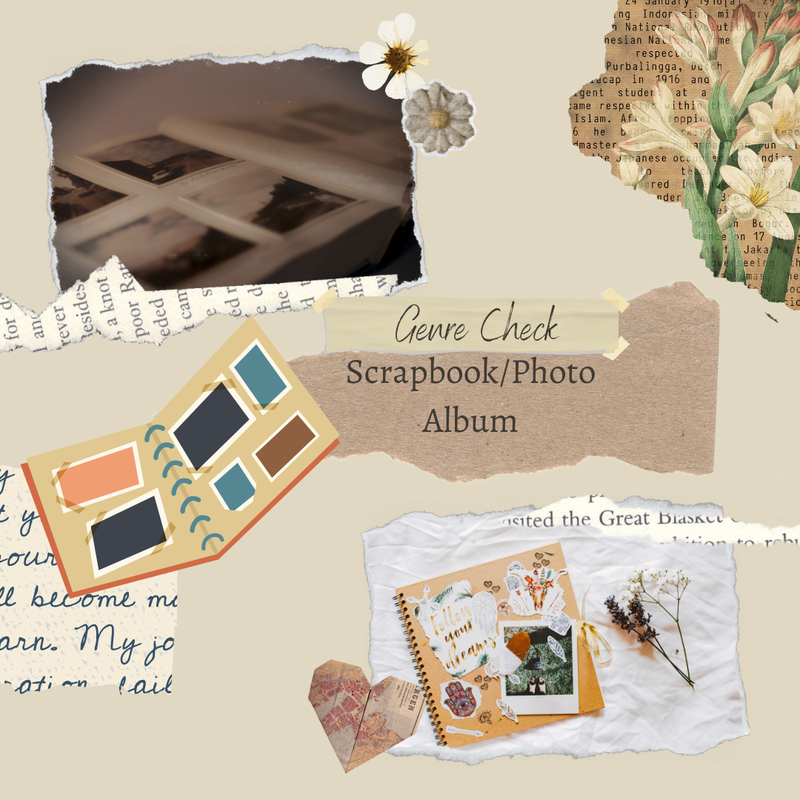
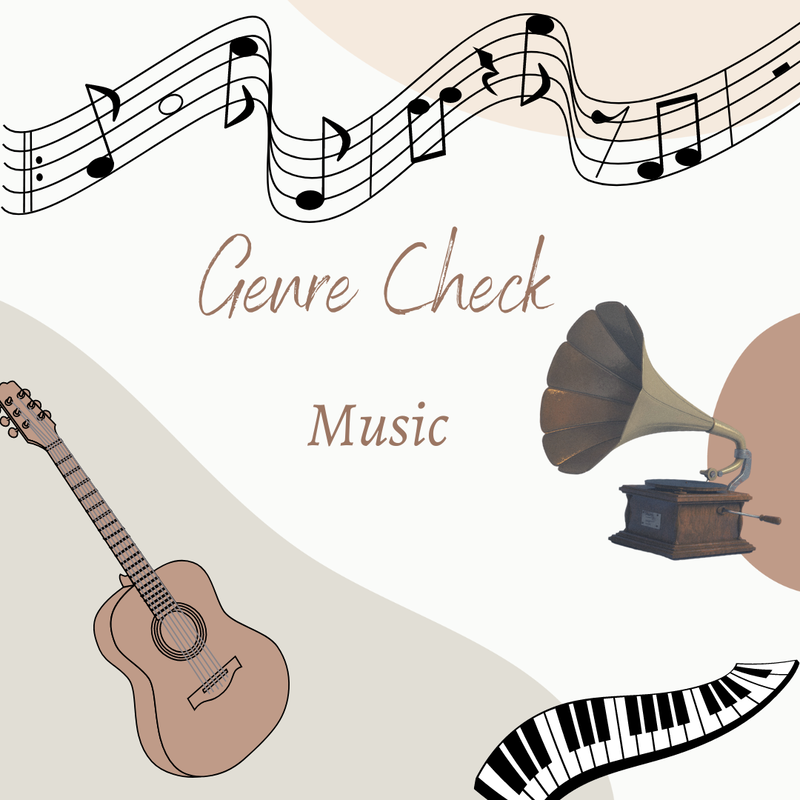
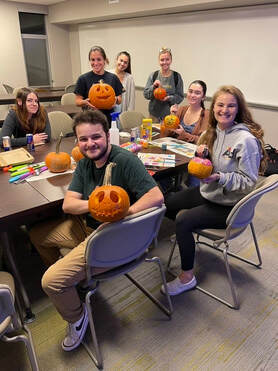
 RSS Feed
RSS Feed